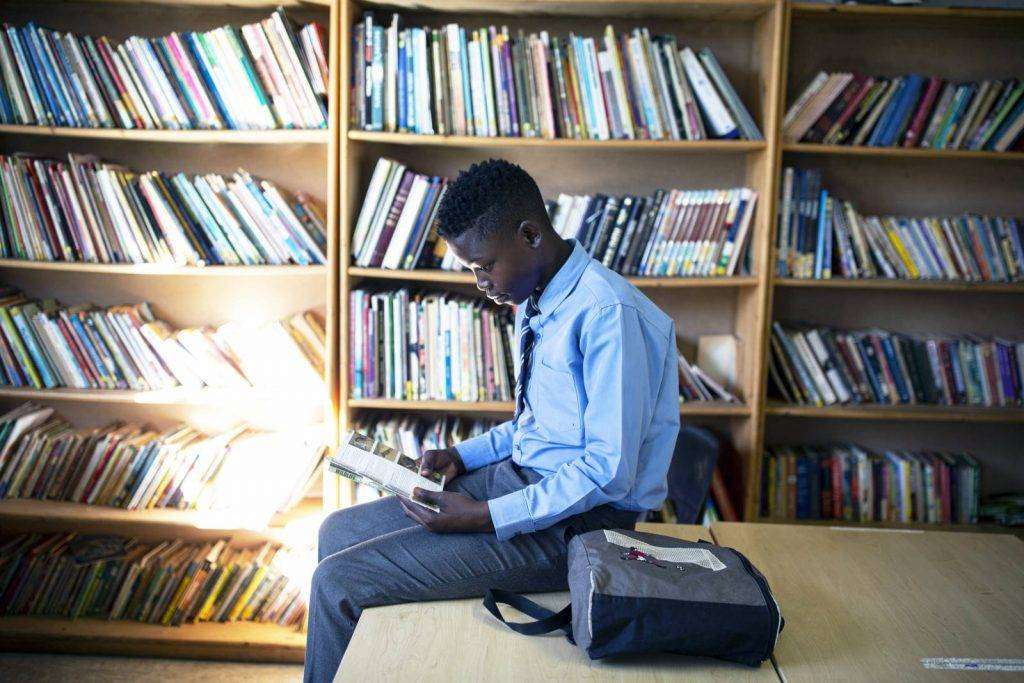Learning for lasting peace – the role of education
Prof Anthoni van Nieuwkerk
Trustee, Umlambo Foundation
“Africa needs a cohort of grassroots peacebuilders to promote lasting peace”
The International Day of Education is recognised on January 24th every year. This year, the sixth International Day of Education will celebrate the theme ‘learning for lasting peace’.
In Africa, how can we use education to promote peace?
More than 45 armed conflicts are currently taking place throughout the Middle East and North Africa. The majority involve a multitude of armed non-state actors supported by foreigners and neighbours.
Africa has the second highest number of armed conflicts per region, with more than 35 non-international armed conflicts. Most of these conflicts take place in West Africa and the Sahel region, East Africa, and Central Africa. Many armed groups – fighting against government forces or against each other – are involved in these conflicts. Even Mozambique experiences the destructive impact of violent extremists. Western powers and neighbouring countries intervene in these conflicts. The number of Africans – young and old, and families – who are forcibly displaced, largely due to conflict, now totals over 40 million people.
Sadly, many children have fallen behind or are missing out on education altogether because of disruptions due to conflict and other crises (such as Covid 19). Extended time out of school has a drastic impact on children’s health, safety and future life choices. Victims of violence including women and children suffer mental anguish and maladjustment to society.
What can be done?
It is tempting to think that peace is a goal that is achievable. Yet Africa and its leadership has failed to make the continent safe and secure for its people. When we discuss peace, what do we mean?
Let’s start with clarifying ‘lasting peace’. Lasting peace is a state of uninterrupted calmness. Positive peace is a more lasting peace that is built on sustainable investments in economic development and institutions. It can also be used to measure a society’s resilience, or its ability to absorb shocks without falling back into conflict.
Durable peace occurs when former combatants reconcile their differences and rebuild security, governmental, and economic institutions.
Building positive peace is a long-term process that aims to end structural violence by creating conditions necessary for peaceful societies. It requires a sustained commitment to social cohesion and development to fully address root causes of conflict.
The developing world, known as the global South, and Africa in particular, are in desperate need for lasting peace.
The search for lasting peace in Africa can be significantly strengthened by leaders in the public and private sectors working with civil societies at various levels in designing and implementing programmes that focuses on ‘peace education’. Peace education can be described as the process of acquiring values, knowledge, attitudes, skills, and behaviours to live in harmony with oneself, others, and the natural environment. It typically focuses on the social-behavioural symptoms of conflict. Programmes equip individuals to resolve inter-personal disputes through negotiation and (peer) mediation.
Global, continental and national instruments are available to anchor such programmes. They include the following.
• The United Nations’ New Agenda for Peace is a vision for how the international community can more effectively prevent conflict and sustain peace when the world is experiencing unprecedented and overlapping crises. The agenda calls for the need to rebuild trust, solidarity and accountability; strengthening of existing mechanisms and capacities for inclusive dialogue, insider mediation and national peace architectures; new voices to explore new solutions; support for grassroots peacebuilders, and using learning and expertise to anticipate and prevent conflict.
• The United Nations also created 17 world development goals call the Sustainable Development Goals (SDGs). They were created in 2016 with the aim of ‘peace and prosperity for people and the planet, now and into the future.’ SGD 4 is about quality education, and Goal 16 is about promoting peaceful and inclusive societies.
• Closer to home, Agenda 2063 is Africa’s blueprint and master plan for transforming Africa into the global powerhouse of the future. It encapsulates the African Union’s vision of an integrated, prosperous and peaceful Africa, driven by its own citizens, representing a dynamic force in the international arena.
• And in South Africa, the post-1994 democratic government adopted a foreign policy posture that seeks to advance Africa’s interests. It focuses on building unity, inclusive economic development and shared prosperity for the African continent and its people. South Africa plays an active role in the structures and processes of the AU to advance peace and security, and prevent conflict in Africa.
The cause of lasting peace will be greatly enhanced if our public and private sector leaders, working with implementers in civil society, embrace the philosophy of peace education, leverage the UN and AU policy frameworks to the benefit of peacebuilders, and ensure its inclusion in school curricula as well as those of institutions of higher learning. Education is the ultimate enabler of lasting peace, and it behoves society at large to take the steps to produce the next generation of citizens with the ability to understand and positively manage conflict. In South Africa, non-governmental organisations such as the African Centre for the Constructive Resolution of Conflict (Accord) promotes peace education, including training women mediators. The Patron of the Umlambo Foundation, Dr Phumzile Mlambo-Ngcuka, is involved in peacemaking in conflict zones in Africa.
Indeed, what Africa needs now is a cohort of grassroots peacebuilders to promote lasting peace. Time is of the essence, and the International Day of Education is the ideal moment to reflect on this requirement for lasting peace.




